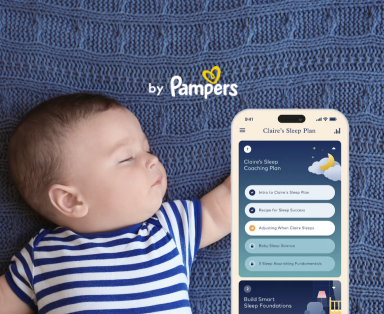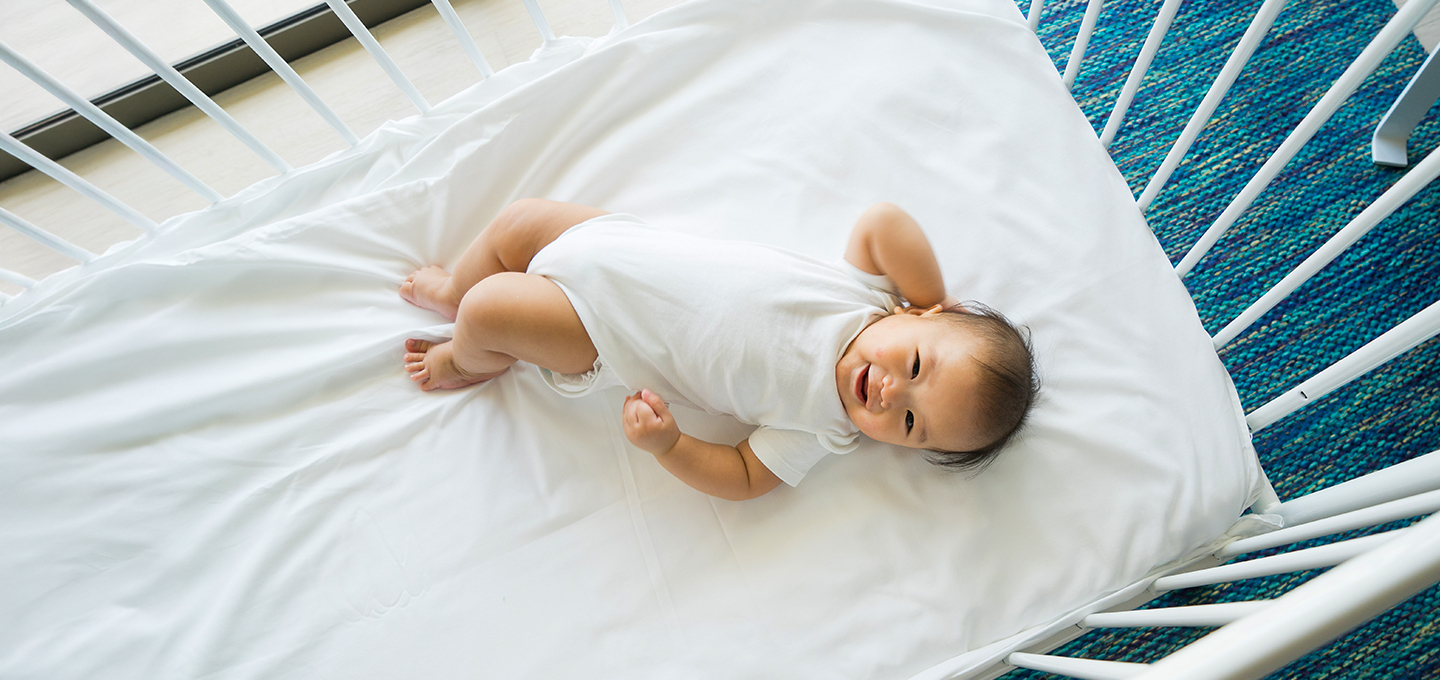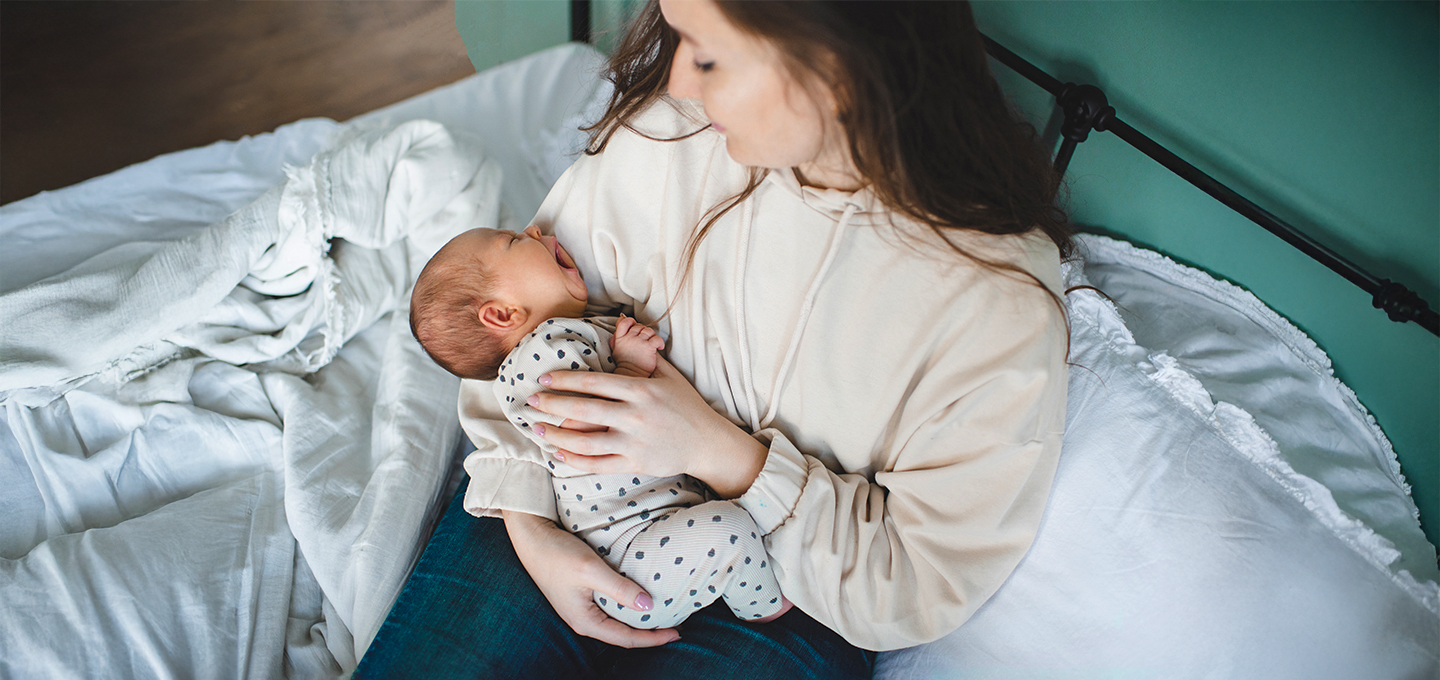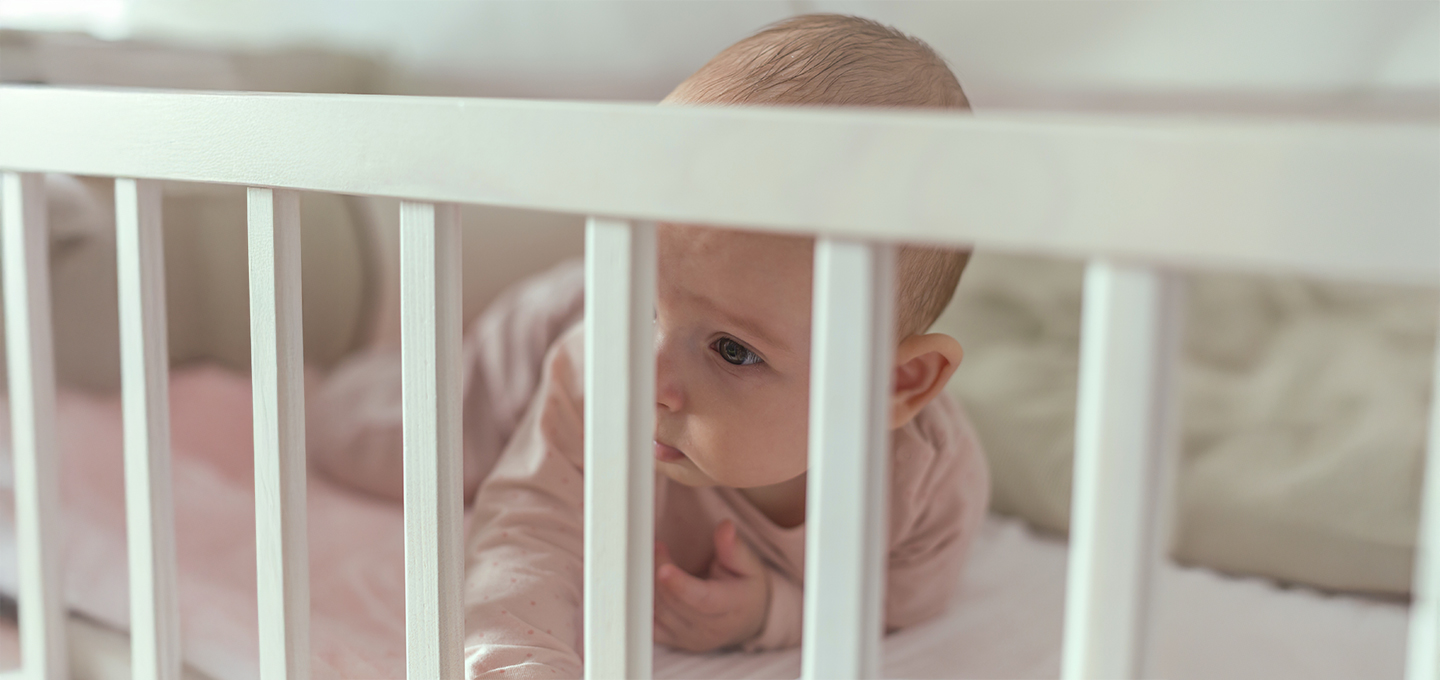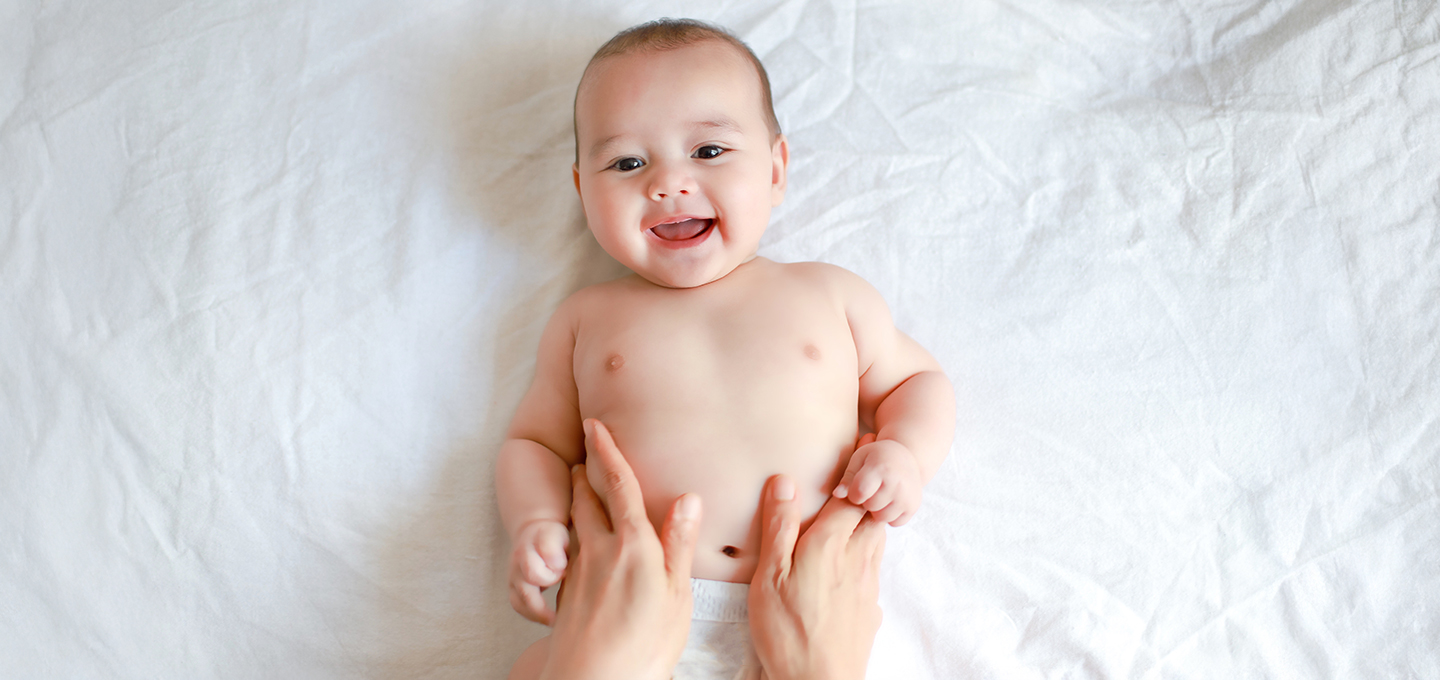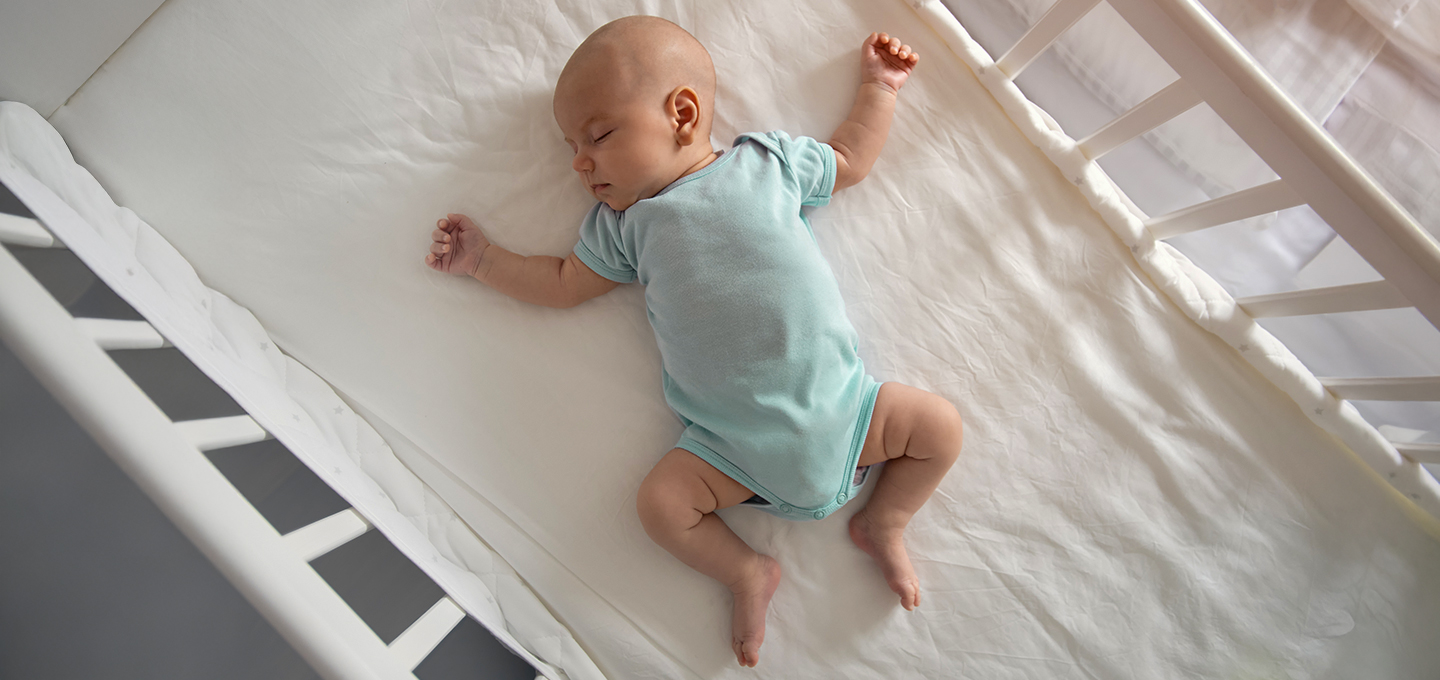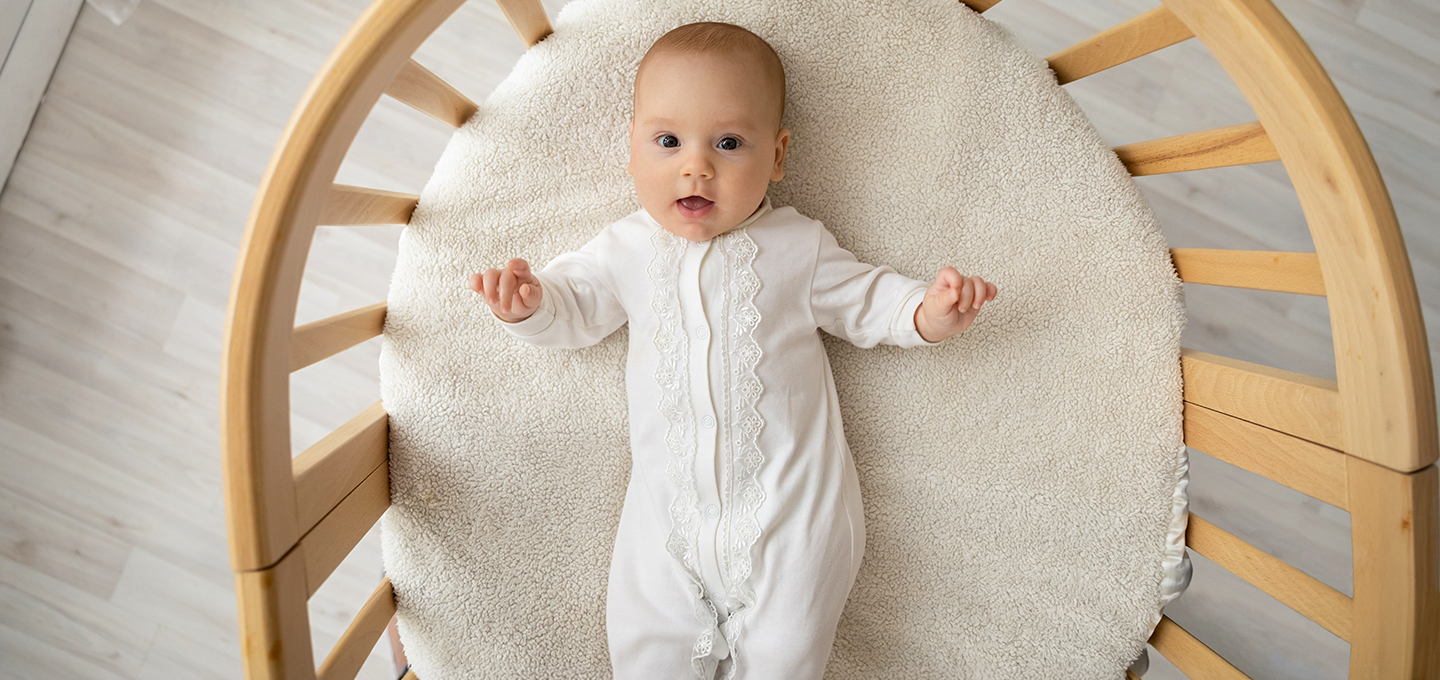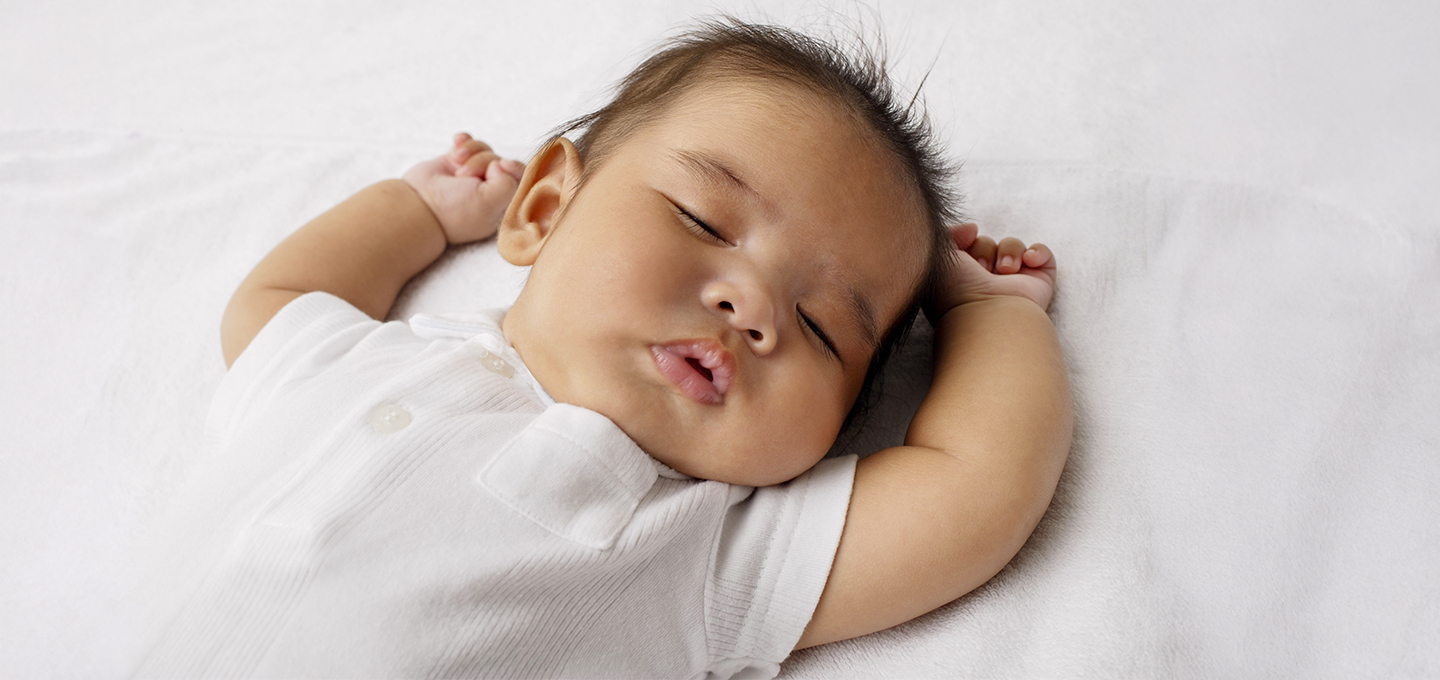
Sleep Training for Babies: When to Start and What to Expect


IN THIS ARTICLE
If you're looking for ways to help your baby fall asleep more independently, you're likely exploring what sleep training is and how to approach it with confidence. Whether you’re just starting or revisiting sleep routines, it’s normal to have questions and want clarity on the best way forward.
At its core, sleep training is about helping your little one learn to self-soothe and settle to sleep without being rocked, fed, or held. It can be a helpful part of building healthy sleep habits for both you and your little one.
You might be wondering:
We’ll walk you through different sleep training techniques, how to spot sleep disruptors, and tips to make the process easier. Whether you’re just exploring or ready to build a sleep training schedule, this guide can help you feel more confident and supported.
What Is Sleep Training?
Sleep training is the process of helping your little one learn to fall asleep independently and return to sleep on their own during the night. It often involves a consistent bedtime routine and recognizing your baby’s natural sleep patterns.
If you’ve wondered, “What is sleep training for babies?” it simply means encouraging self-soothing skills through routine and gentle guidance. While not every family may feel that sleep training is necessary, many find it helps improve sleep for both the baby and the parents.
Is Sleep Training Harmful?
As a parent considering sleep training, asking if sleep training is harmful, is an entirely valid concern. You may have come across claims about why sleep training is bad, and you’re looking for clarity on whether it's safe or beneficial.
According to a 2016 study by the American Academy of Sleep Medicine, children who were sleep trained were more secure and predictable, cried less, and were less irritable and fussy. These findings support the AAP sleep training perspective that, when conducted thoughtfully, sleep training can be a safe way to support emotional and mental development through the establishment of healthy sleep habits.
If you're still wondering if sleep training is bad or just want guidance specific to your baby, it’s a good idea to speak with your healthcare provider. You can also take this Better Sleep Quiz—the Smart Sleep Coach app offers personalized tips to help support your sleep.
When to Start Sleep Training
Deciding when to start sleep training your little one is a personal choice, but most experts recommend waiting until your little one is at least 4 months old. That’s typically when you can start sleep training in a more structured way.
Around this age, your baby may begin:
Many parents find that this stage—often marked by the 4-month sleep regression—is a helpful time to begin consistent sleep habits. If you're unsure when to sleep train your baby, your child’s healthcare provider can help you decide what’s right for your family.
How Long Should Sleep Training Take?
It's common to wonder, “How long does sleep training take?” Sleep training can take anywhere from a few days to several weeks or more, depending on your baby's temperament, the consistency of your approach, and the chosen sleep training method.
Some may take a bit longer to adapt to new routines. If you're feeling uncertain about how long sleep training should take, remember that patience and consistency are key. If sleep training takes longer than expected or you have concerns, your baby's healthcare provider can offer guidance tailored to your situation.
Baby Bedtime Routine
A consistent newborn bedtime routine is one of the most important foundations of successful sleep training. Creating a bedtime routine for your little one that includes calming activities—like a warm bath, gentle rocking, or a lullaby—can help signal to your baby that it’s time to wind down. Over time, this predictable bedtime routine helps your little one feel safe and ready for sleep.
Whether you're building a routine for naps or a full nighttime routine, having clear and calming cues in place can make it easier to introduce sleep training methods that fit your family’s style and your baby’s unique temperament.
Sleep Training Methods
There are many sleep training techniques to consider, ranging from gentle sleep training approaches to more structured methods. The best method is the one you can follow consistently and that works with your little one’s personality. Below are a few commonly used baby sleep training methods to help guide your decision-making:
Regardless of the baby sleep training method you choose, consistency and a soothing bedtime routine will help support its success.
Tips for Sleep Training Your Baby
When learning how to sleep train a baby, a few foundational tips can make a big difference. Whether you’re just starting or adjusting your routine, these strategies can help you create a successful sleep training schedule:
Things That Can Cause Sleep Habit Problems
Sticking to your sleep training schedule and building strong sleep habits takes time, and it's normal to hit a few bumps along the way. Being aware of certain common habits can help you avoid unintentionally disrupting your little one’s progress:
By being mindful of these habits, you can help support your little one’s independent sleep skills and maintain the progress you’ve made with sleep training.
FAQS AT A GLANCE
It’s never too early to begin encouraging healthy sleep habits. Around 4 months old, your baby typically develops more predictable sleep patterns and can start learning to self-soothe, making it a good time to begin sleep training.
The Bottom Line
Sleep training is a journey, like many parts of parenting, it takes time, trial, and a lot of patience. It may feel overwhelming at first, especially with all the opinions out there, but finding a method that fits your little one and your comfort level can make a real difference.
Whether you choose gentle sleep training or a more structured approach, the key is consistency and trust in the process. There’s no perfect timeline, no single right way—just what works best for your baby and your family. Remember, your baby is learning, growing, and adapting—just like you.
If you’re unsure where to begin or feel stuck along the way, your baby’s healthcare provider can help guide you through your options with care and insight.
And for extra support, the Pampers Rewards App is here to make your journey a little easier. It offers digital rewards to help you save on Pampers products, because even small wins can make a big difference.
- American Academy of Sleep Medicine. "Practice Parameters: Behavioral and Pharmacologic Treatments of Sleep Disorders in Children."
- Healthy Children. "Ep. 002: Sleep – Teaching Good Habits Early."
- Healthy Children. "Getting Your Baby to Sleep."
- La Leche League International. "Sleep Training or Not."
- Mayo Clinic. "Baby Sleep: Tips for the First Year."
- Sleep Health Journal. "Behavioral Interventions for Sleep Problems in Children."
- Smart Sleep Coach. "Baby Sleep Training Methods."
- Smart Sleep Coach. "What Is Sleep Training and How Do You Do It?"
- Zero to Three. "Help Babies Learn to Fall Asleep on Their Own: What Research Says."


